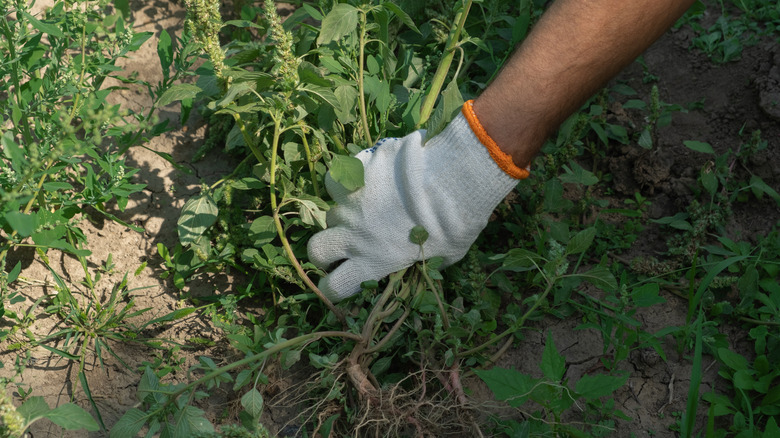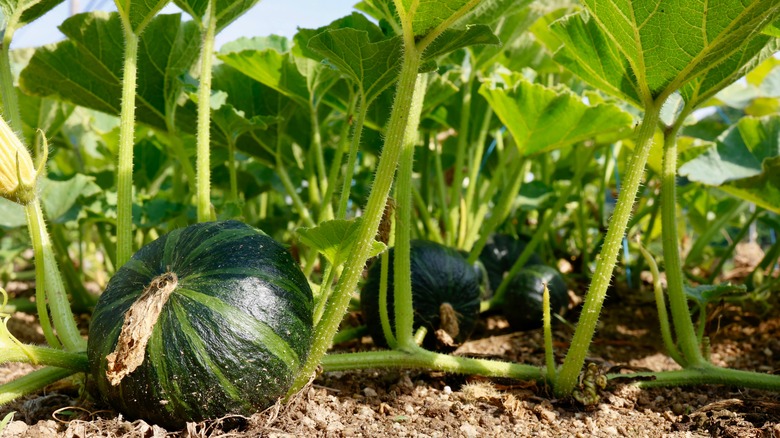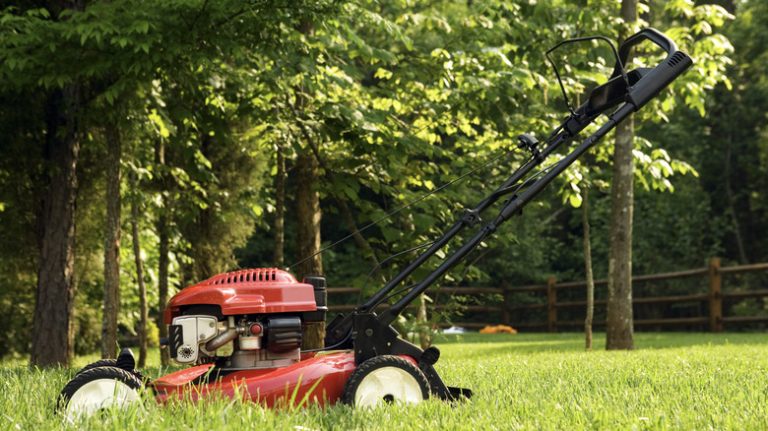Let’s face it. Weeding isn’t at the top of most gardeners’ favorite gardening task lists, and we’d all love to know the best ways to get rid of weeds in the garden. The less physical weeding we have to do to in our gardens, the better, and savvy gardeners will already know that growing certain types of plants can assist in keeping those pesky weeds at bay. If you are a keen vegetable gardener, planting winter squash could be the answer to your weeding nightmares. They don’t call it ‘squash’ for no reason — you can actually grow winter squash as a strategic ground cover to choke out areas of your garden that need frequent weeding. The squash plant forms a canopy with its long vines and large leaves to protect the soil by blocking out scorching sunlight and smothering and suppressing the weeds.
This green cover can also help to retain moisture in the soil like a mulch, which can benefit adjacent companion plants and keep them hydrated. A great example of this type of companion planting is known as “Three Sisters.” It was developed by Native American tribes who believed that sweetcorn, climbing beans, and pumpkins or squash grew best when planted together. This method of symbiotic planting helps to maintain soil fertility, with each plant benefiting from the nutrients they need without needing to compete against each other.
The benefits of organic weed control

Weeding is critical when growing young plants to avoid weeds competing for nutrients during the first six to eight weeks after planting the new plants. If this happens, it’s likely to lead to stunted growth or reduced yields. After the critical period, weeds don’t pose as much of a threat as long as they are prevented from producing seeds. However, it’s easy to damage other plants during weeding sessions. The strategic use of organic weed control methods is a non-destructive natural way to protect young plants during their most vulnerable growing period.
By planting winter squash, instead of using more invasive weed removal methods like pulling them out, you can avoid disturbing sensitive young roots and causing damage that your new crops may not be able to recover from. Interfering with vines from any crops that belong to the cucumber family can also result in the vegetables halting in their ripening process. Therefore, the fact that these plants form such a dense canopy of ground cover foliage is extremely beneficial for shading out weeds so that they can’t grow. Sweet potatoes are another plant that provides their own organic weed control, and plenty of veggies that seem to come hand-in-hand with weeds can benefit from being planted with them, like onions and carrots.




